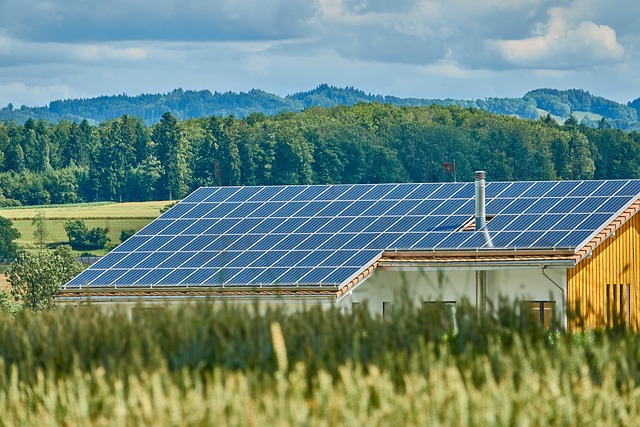Traveling doesn’t mean we have to leave our eco-conscious values behind. As more of us prioritize sustainability, hotels, and vacation rentals are stepping up to offer greener options. But with so many choices, how do we ensure our stays align with our commitment to the planet?
By making thoughtful decisions, we can reduce our environmental impact while supporting businesses that care about sustainability. Many ways exist to identify accommodations that share our values, from energy-efficient practices to locally sourced amenities. Let’s explore how we can travel responsibly and make a positive difference, one stay at a time. For those seeking inspiration for eco-friendly travel destinations, check out these top landscape places worldwide, where nature and sustainability go hand in hand.
Importance Of Sustainable Travel
Sustainable travel is vital in mitigating tourism’s environmental impact, which is responsible for approximately 8% of global carbon emissions. Eco-friendly accommodations actively lower energy use, minimize waste and curb greenhouse gas emissions through technologies like solar panels, LED lighting, and automated energy systems. These changes significantly shrink their carbon footprint.
Choosing sustainable hotels also supports local economies. Many eco-conscious properties prioritize sourcing goods and services from local producers, boosting regional businesses, and providing guests with authentic experiences. Making eco-friendly choices promotes long-term benefits for the planet and the communities we visit.
Key Factors To Consider When Choosing Eco-Friendly Accommodations
Selecting accommodations that prioritize sustainability requires evaluating specific aspects of their operations. For example, if you are looking to book vacation rental in Chicago, focusing on certifications, resource conservation, and waste management makes it easier to ensure your stay aligns with eco-friendly principles.
Green Certifications And Labels
Hotels and rentals with third-party certifications like LEED or other eco-labels demonstrate commitment to sustainability. These certifications verify efforts in energy efficiency, water conservation, waste reduction, and eco-friendly products. Properties meeting these standards are credible choices for environmentally conscious travelers.
Energy And Water Conservation Practices
Eco-friendly accommodations adopt renewable energy sources like solar panels and wind turbines. They also use energy-efficient lighting, such as LED bulbs, reducing electricity consumption. Many properties feature water-saving systems like low-flow faucets and showers, ensuring minimal resource wastage.
Waste Management Programs
Sustainable properties integrate robust waste management strategies, including thorough recycling and composting practices. Some even eliminate single-use plastics in favor of biodegradable alternatives. These efforts reduce the environmental footprint while supporting global sustainability goals.
Supporting Local Communities Through Your Stay
Choosing accommodations that prioritize the well-being of local communities makes a significant impact. This approach ensures that travel positively contributes to our destinations’ economic and social fabric.
Locally Owned Hotels And Rentals
Staying in locally owned hotels and rentals directly supports the local economy. Unlike large chain hotels, these accommodations often reinvest in the community by sourcing goods and services from local businesses. Owners are usually more engaged in local environmental preservation efforts, ensuring tourism benefits visitors and residents. For instance, a locally owned eco-lodge might use traditional building materials while employing members of the surrounding community.
Community-Focused Initiatives
Accommodations with community-focused initiatives demonstrate their dedication to giving back. These may include partnering with local tour operators who promote eco-friendly activities, sponsoring cultural events, or donating to community projects. Some hotels rent bicycles to reduce transportation emissions, while others collaborate with local artisans to provide guests with authentic experiences. By choosing these establishments, we help foster sustainable tourism that uplifts local communities and preserves their heritage.
Eco-Friendly Amenities To Look For
Sustainable travel begins with choosing accommodations that adopt eco-friendly practices. Hotels and rentals offering renewable energy, non-toxic cleaning products, and locally sourced food options significantly reduce environmental footprints.
Renewable Energy Sources
Properties powered by renewable energy, such as solar or wind, help reduce reliance on fossil fuels. For instance, hotels using solar panels or geothermal systems lower carbon emissions and maintain energy efficiency.
Non-Toxic Cleaning Products
Cleaners made from non-toxic, biodegradable ingredients protect guests and the environment. Hotels prioritizing these products prevent harmful chemicals from polluting water systems while ensuring safer indoor air quality.
Locally Sourced Food Options
Accommodations that feature menus with local ingredients support sustainable practices. Properties sourcing food locally reduce transportation emissions while promoting regional farmers and decreasing dependence on non-local supply chains.
Questions To Ask Before Booking
Choosing eco-friendly accommodations begins with asking the right questions. Understanding a property’s sustainability measures ensures your stay aligns with responsible tourism principles.
Environmental Policies In Place
It’s essential to verify whether accommodations practice sustainable operations. Check for energy-efficient technologies, such as LED lighting or renewable energy use. Ask about water conservation efforts, including low-flow fixtures, greywater recycling, or a commitment to minimizing water waste. Properties highlighting such measures often display environmental policies on their websites or provide evidence of compliance during inquiries.
Support For Sustainable Tourism Efforts
Explore how properties contribute to sustainable tourism in their regions. Ask if they source products locally, such as food and building materials, to reduce their carbon footprint and boost the local economy. Inquire about eliminating single-use plastics or partnerships supporting local environmental initiatives. Accommodations aligned with sustainability principles often share these efforts openly, showing dedication to positive community and ecological impact.
Conclusion
Sustainable travel starts with our choices, and selecting eco-friendly accommodations is a powerful way to reduce our environmental footprint. We can align our travels with our values by prioritizing properties that embrace renewable energy, resource conservation, and community support.
Every decision matters, from the certifications we look for to the questions we ask before booking. Together, we can foster a more sustainable tourism industry that protects the planet and uplifts local communities for generations.




